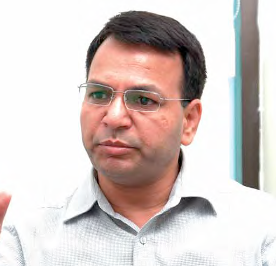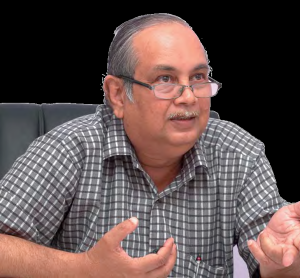With its growing need and coming up as a super specialty, all is not good in medical paradise as with the growing demand there has a huge shortage of trained and dedicated human resources in critical care. The main work force in the Cardiac Care Units and Intensive
Care Units are majorly MBBS doctors,who are physicians, anesthesia or from emergency. As critical care being a specialty in itself has to train these doctors according to the work pressure and procedure of the critical cis that too during their work in critical care.
Recently to bridge the gap between the hospital and the specialist in critical care, Indian Society of Critical Care Medicine (ISCCM) has come up with the Post MBBS course, fellowship courses and certificate courses. Even major hospitals like Max, Apollo, Fortis, Medanta and many more too had started running their in-campus courses recognised by National Board of Examination and ISCCM.
Whilst experts think that though they dont become the critical care specialties but they do get adequate training in critical care. The main reason which most of the critical care experts are thinking about not so many students taking it as a specialty is low remuneration and ICU stress.
Future challenges for Critical CareCorporatisation, government passing the buck to private sector,poorly trained professionals because of booming education sale in medical field , high cost of medicine and equipment,brain drain, high turnover, new diseases epidemics, antibiotic resistance Nosocomial infections, crisis of confidence between public and profession are the major challenges in the development of the Critical Care |
In order to make critical care to reach to the community hospitals experts says that government should design courses which should not be as extensive as required for tertiary care centers but they should focus, like IGNOU is planning to have one and two year post MBBS critical care diploma particularly in the secondary care and community care health centers. So that kind of approach can help in getting critical care in the primary and secondary care level.So that these doctors should spend some time in tertiary care hospitals for hands on training and for theories can be provided by other recognised societies.
Excerpts from some of the leading medical professionals.
Dr Narendra Rungta, Courses in critical care that are being run by ISCCM has already has made a difference to the Indian Patients and Hospitals .Almost 80 percent meaningful ICUS in our country are manned by doctors trained in various courses run/sponsored by ISCCM during last 15 years . We (ISCCM) are the focus in the world of critical care medicine in the World.
Dr Omender Singh, These courses have been started by National Board of Examination (NABH) and ISCCM. After these courses now we dont have to trained doctors in ICUs in the future. Because if you want to provide quality care treatment to the more critically ill patients then you need to have more certified doctors in critical care round the clock, 24*7,365 days especially in secondary and primary health care services.
Dr Abhay Patwari, Very few structured courses for critical care are available in India right now. Certificate course in critical care medicine is one of the largest courses in the country. In Diploma or fellowship in critical care the number of students is less than as compared to Indian Society course. At present, that is the only way to get trained people in ICU. In the long run, we are looking forward to more structured courses to come up in which the doctors will be specially trained for critical care. The course presently is of one year course on Anesthesia technology but we require more structured course to get specially trained doctors for CCU.
Dr Yatin Mehta,Each specialty goes through these stages until a time comes when it is recognised as a fullfledged specialty in its own right with its own science, structured training programs and certification. Certificate provided by the ISCCM will definitely help in securing a job in preference to a person with ICU experience but no certification.

Be a part of Elets Collaborative Initiatives. Join Us for Upcoming Events and explore business opportunities. Like us on Facebook , connect with us on LinkedIn and follow us on Twitter , Instagram.




